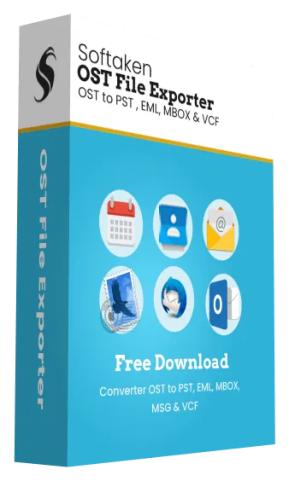In today’s fast-paced world, professionals are constantly looking for ways to upskill and stay relevant without compromising their current job roles or personal responsibilities. For those in the software testing and quality assurance (QA) domain, staying updated is not just a good-to-have; it's essential. With rapid changes in technologies like automation, continuous integration, DevOps, and AI-powered testing, testers need to evolve with the times.
But the real question is: Can busy professionals manage to learn new testing tools or earn certifications without disrupting their current schedules? The answer is increasingly pointing to one clear solution: Online testing classes.
The Rise of Online Learning for Testers
Online learning has gained tremendous popularity in recent years, and it’s not difficult to see why. For testers and QA professionals, traditional classroom training can be time-consuming, rigid, and expensive not ideal for someone juggling a full-time job, family commitments, and perhaps even freelance projects.
Online QA testing courses offer a flexible, scalable, and often more affordable alternative. Whether you’re aiming to master Selenium, TOSCA, JMeter, or Postman or looking to get certified in ISTQB, the digital learning landscape has you covered.
Let’s break down why online testing classes are becoming the top choice for busy professionals.
1. Flexibility and Convenience
This is perhaps the most compelling reason. Online classes eliminate the need to commute or adhere to strict class timings. Most platforms offer two modes of delivery:
Live instructor-led sessions – where learners attend virtual classes in real time
Self-paced courses – where you get access to recorded sessions and can learn at your own speed.
This flexibility allows professionals to choose the mode that suits them best. For example, a QA engineer can attend a live Selenium class after work hours or watch recordings over the weekend.
Key Benefit: You learn when and where you want—at your pace.
2. Cost-Effective Learning
Enrolling in an in-person course involves not just tuition fees but also commuting costs, sometimes accommodation (for out-of-town learners), and meals. Online QA testing classes, on the other hand, are significantly more affordable.
Many platforms also offer installment plans, discounts, or even free trial classes. This is particularly helpful for professionals funding their own upskilling journeys.
Bonus Tip: Some employers are willing to reimburse online training fees if it adds value to your current role. Don’t forget to ask!
3. Access to Global Expertise
When you opt for online training, you're not limited to local instructors or institutions. You can learn from the best QA professionals across the globe. Many platforms collaborate with industry veterans who have years of hands-on experience in automation, performance testing, and test management.
Live classes often include Q&A sessions, mentorship opportunities, and real-world projects that add immense value to your learning journey.
Pro Insight: An experienced trainer brings more than theory—they share practical tips, tools, and troubleshooting techniques that help you thrive on the job.
4. Comprehensive Course Content
The best online testing classes are thoughtfully designed to align with industry demands. They often cover a wide range of topics, including:
- Manual Testing
- Automation Tools (Selenium, TOSCA, QTP, UFT)
- Performance Testing (JMeter, LoadRunner)
- API Testing (Postman, REST Assured)
- Continuous Integration Tools (Jenkins, Git, Docker)
- Cloud-Based Testing
- Agile and DevOps Integration
In addition, learners often receive access to downloadable study materials, project files, and mock tests to prepare for certifications.
Extra Perk: Many platforms also provide lifetime access to course materials, allowing you to revisit topics anytime.
5. Real-World Projects and Hands-On Practice
Online testing classes don’t just focus on theory. Most include practical assignments, capstone projects, and even access to virtual labs or testing environments where you can work on real applications.
This practical exposure is crucial because employers look for hands-on experience—not just certifications.
Example: In a Selenium automation course, you might be asked to create a framework from scratch, write test cases, and execute them across browsers using TestNG or Cucumber.
6. Preparation for Industry-Recognized Certifications
Certifications are a great way to showcase your expertise to employers. Online testing classes often gear their curriculum toward certification readiness. Popular certifications include:
- ISTQB Foundation and Advanced Level
- Certified Selenium Professional
- TOSCA Automation Specialist
- Certified JMeter Performance Tester
These programs include mock tests, exam blueprints, and doubt-clearing sessions to help you succeed.
7. Networking and Career Opportunities
Contrary to popular belief, online learning is not a lonely endeavor. Many courses offer access to:
- Private learner communities
- Discussion forums
- Alumni groups
- Job boards and placement support
This makes it easier for busy professionals to connect with peers, exchange ideas, and even explore job opportunities or collaborations.
8. Recorded Sessions and Lifetime Access
One of the best parts of online testing classes is the availability of session recordings. If you miss a live class due to work or personal emergencies, you can simply catch up later. Many courses also allow you to re-watch classes even after you’ve completed the course.
This is especially useful when revising for interviews or refreshing your knowledge on a specific tool before a new project.
9. Helps You Stay Competitive
The job market is highly competitive, especially in the tech industry. As more companies move toward DevOps, Agile, and Continuous Delivery, QA roles are evolving. Testers are now expected to:
- Write automation scripts
- Understand code logic
- Perform API and performance testing
- Collaborate closely with developers
Online testing classes can help you meet these expectations without quitting your job or putting your life on hold.
Reality Check: Employers are more inclined to hire or promote professionals who show a willingness to learn and adapt.
10. Tailored for Different Experience Levels
Whether you are a:
- Fresh graduate looking to enter the QA field,
- Manual tester wanting to learn automation,
- Experienced engineer aiming to shift to performance or API testing,
- Or a team lead looking to adopt test management tools...
there’s an online class tailored to your needs.
You can start with beginner-level courses and gradually move to advanced certifications. Most platforms guide you with personalized learning paths.
Things to Consider Before Choosing an Online Testing Class
While online testing classes offer numerous advantages, not all courses are created equal. Here are a few things to watch out for:
- Check Instructor Credentials – Ensure they have real industry experience.
- Read Reviews and Testimonials – This gives insight into the course's quality.
- Look for Practical Assignments – Theoretical knowledge isn’t enough.
- Assess Support Services – Do they offer doubt sessions, resume help, or career guidance?
- Request a Demo or Free Trial – Test before you commit.
Final Verdict: Yes, Online Testing Classes Are Ideal for Busy Professionals
The verdict is clear. For busy professionals seeking to upgrade their skills or switch career paths, online testing classes offer the perfect blend of flexibility, affordability, and quality learning. They allow you to grow at your own pace without compromising on work commitments or personal responsibilities.
Whether you're aiming to land a new job, earn a promotion, or simply stay relevant in your role, enrolling in a high-quality online QA or testing course is a smart investment.
Ready to Upskill?
If you're ready to take the next step, explore our curated list of online testing classes including live instructor-led courses in Selenium, TOSCA, API Testing, and more. Learn from industry experts, work on real-world projects, and boost your QA career today.
Read More Blogs: Frequently Asked Software Tester Interview Questions & How to Answer Them
















